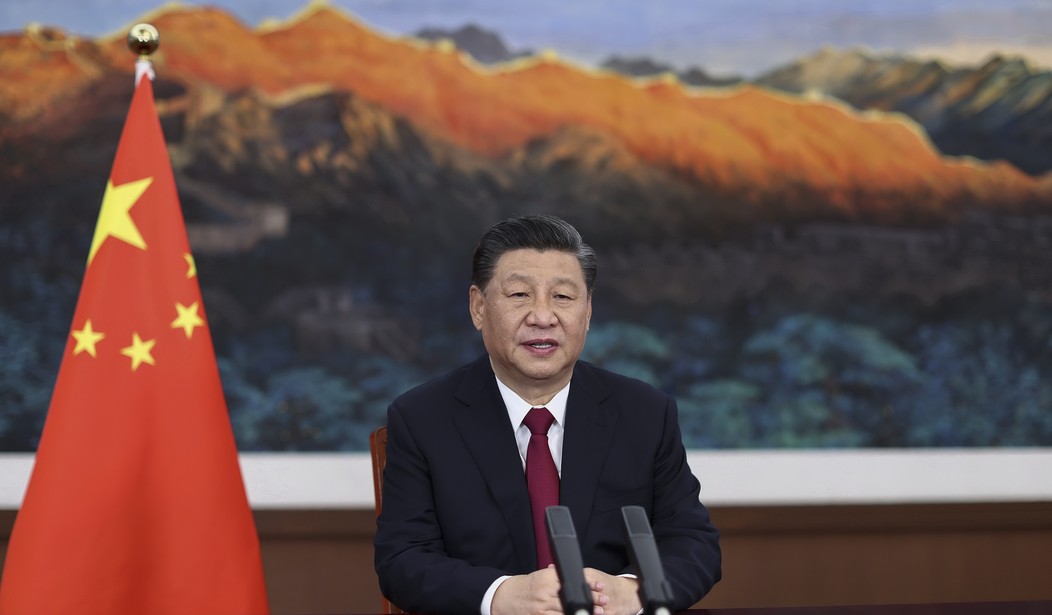On June 4, 1989, Associated Press photographer Jeff Widener stood on his sixth-floor balcony of the state-owned Beijing Hotel. Widener was nursing his injuries — he’d been hit in the face with a stray rock while covering pro-democracy protests the previous evening — when he suddenly noticed a man in white shirt run out into the street below.
For the next few minutes, this man stood firm as he obstructed the path of Chinese tanks rolling through Tiananmen Square. Widener grabbed his camera and relied on a friend to smuggle the footage out of China. His footage immortalized “Tank Man,” which was nominated for a Pulitzer Prize in 1990 and went on to become one of the most iconic images of the 20th century.
When I’m asked who my heroes are, there’s one I always try to include: a yet-unknown Chinese man who stood up to the Communist military, groceries in hand, just after the #TiananmenSquare massacre 32 years ago. #TankMan showed the world what bravery means.pic.twitter.com/6s0AU46jji
— Jerry Dunleavy (@JerryDunleavy) June 4, 2021
But “Tank Man” was just the beginning. Student-led protests had been raging across Beijing since mid-April, when China’s disgraced and purged former General Secretary Hu Yaobang succumbed to a heart attack at the age of 73. Hu’s favorable stances on free speech and the freedom of the press inspired the Generation X students who came of age as the Iron Curtain collapsed across Europe.
Chinese Communist Party (CCP) leaders were having none of it. As protests grew violent in the capital, Deng Xiaoping ironically deployed the People’s Liberation Army to crush the freedom fighters trying to liberate themselves from communist rule. In the ensuing massacre, 218 demonstrators lost their lives.
More than three decades on from the Tiananmen Square massacre, and the CCP has done little to reform its totalitarian instinct. For one, Beijing has never formally acknowledged the event. Most Chinese citizens are unaware of what happened at Tiananmen that day, as even mentioning the events is illegal in mainland China, and the families of the victims are intimidated by authorities in the weeks leading up to the massacre’s anniversary.
Recommended
Furthermore, the citizens of Hong Kong must be cautious in commemorating the Tiananmen victims. Just this week, the CCP completely cracked down on memorial ceremonies in its semi-free special autonomous region. On Wednesday, a Tiananmen Square museum was shut down just three days after opening after the owners were deemed to be illegally operating a “place of public entertainment.” And yesterday, authorities arrested one of the organizers of a planned candlelight vigil in Victoria Park, citing COVID-19 concerns.
Of course, the notion that the CCP cares anything about COVID-19 is laughable. Anyone who has lived through the last year and change knows that the Chinese government was complicit in covering up the virus. The extent of its severity was not reported to the World Health Organization until December 31, 2019 — more than six weeks after it was first identified in Wuhan. Mounting evidence also seems to suggest that the virus was leaked from a laboratory in that city.
This is the exact sentiment echoed by House Minority Leader Kevin McCarthy (R-Calif.), who in a press release stated that the CCP “selfishly hoarded medical supplies and lied to the world, creating a global catastrophe.” McCarthy correctly added that “Chinese people are no closer to freedom from government oppression today than they were in 1989.”
The Chinese Communist Party wants to erase any memory of Tiananmen Square from 32 years ago today. And now they're trying to do the same on their responsibility for COVID-19.
— Kevin McCarthy (@GOPLeader) June 4, 2021
The world deserves the truth. Full investigation. We must hold the Chinese government accountable. pic.twitter.com/7z2RwQ2Wsh
Today, the identity and fate of “Tank Man” remains unknown, but student organizer Shao Jiang has stated that the subject of Widener’s famous photograph was not the only protester who attempted to obstruct the path of the tanks. If Tank Man is still out there in China somewhere, the heavily censored state media means he is likely unaware of his status as an international sensation. But perhaps more importantly, in a world still plagued by pandemic restrictions, the anniversary of this CCP atrocity should remind us of the importance of standing up for our freedoms.

























Join the conversation as a VIP Member